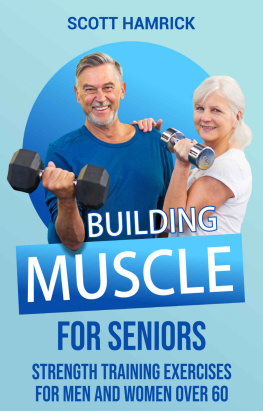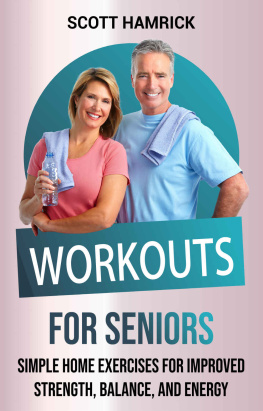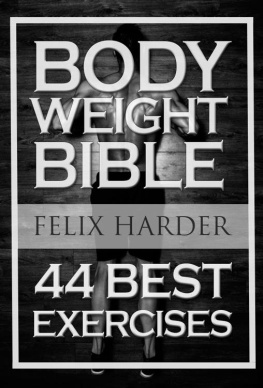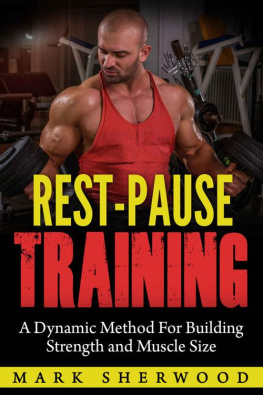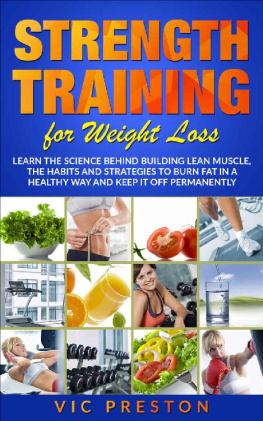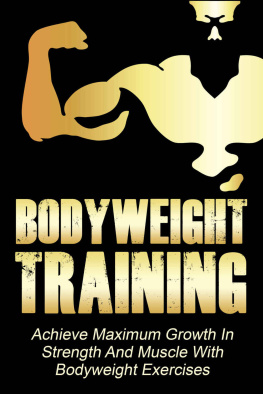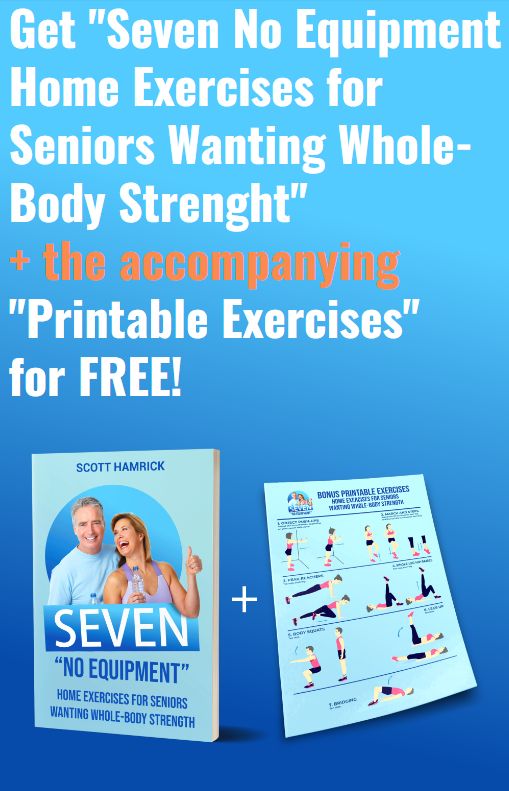My name is Scott Hamrick, and first off, I want to THANK YOU for reading my book.
Now you have a chance to join my exclusive workout for seniors email list so you can get the ebook below for free as well as the potential to get more ebooks for seniors for free! Simply click the link below to join.
P.S. Remember that its 100% free to join the list.
Introduction
As you get older, your body becomes weaker, and your muscles become smaller. These changes begin in your thirties and accelerate as you get older. It is an inevitable part of aging and lack of exercise. It is very easy to do nothing in this day and time, and if you are too lazy to exercise, you will get weaker faster than you age. It's that simple. However, when you engage in active exercise in whatever form and do it properly, you will age stronger and healthier. That's right, men and women over the age of 60 can maintain their strength and get stronger than their younger version. With greater strength and good health comes the effortless ability to do things and get more out of life each day.
Moreover, consistent exercise will help you build muscles, improve fitness, strengthen bones, reduce health complications, gain confidence, lose fat, and look stunning. Strength training exercise should be one of the most important activities of your day, especially if you are 60 and above and want some additional muscles.
Getting started with strength training exercises can be challenging, especially if you are new to exercising and muscle building. It is difficult to know how and where to start, and many questions may arise. That is why we have come up with this book to give you a comprehensive outlook on how to build muscles if you are a senior.
This book includes free-weight and weighted exercises for the upper and lower body muscle group. It's easy to understand, great for beginners, and contains hands-on instructions. It also includes muscle building complementary diets and recipes that will help to speed up the muscle-building process. This book is a perfect gift for seniors looking to build muscle or stay healthy. It is also a great resource for anyone looking to expand their knowledge of how seniors can best build muscle and exercise effectively.
While there are many variables, you must consider and implement them to ensure you're not wasting your time and getting the desired results. It's also important that you are more aware of your body to avoid injuries. Some of the exercise samples in this book can be risky when not properly executed. By following the instructions and staying consistent with the steps in this book, you'll soon begin to grow muscle and leave everyone puzzled about how you could pull such a stunt in your 60s. So, without further ado, let's get stronger!
Chapter 1: Get Your Diet Right
It is commonly stated that diet is more important than exercise when it comes to building muscle, and that is why it is so important to get it right . Building muscle requires hard work in the gym and outside the gym. Muscle building is a process that requires a combination of strength training exercises along with a healthy balanced diet. Eating various nutrient-dense foods with the right blend of proteins, carbohydrates, and healthy fats is necessary to achieve the desired result. Some people often mistake restricting caloric intake for increasing their chances of growing muscle faster.
That's a bad choice because your body will often turn to your muscle for fuel when your calories are low, which decreases your chances of growing muscle rather than increasing it. So, suppose you desire to grow muscle. In that case, you should eat enough protein, carbohydrates, fat, and other essential nutrients needed to sustain your muscle growth. You must tailor your training plan and your diet to meet your needs.
Protein can particularly help in the process. The amount of protein, carbohydrates, and nutrients you need will depend on your genetics, lifestyle, and fitness goals, but some foods are always great options to consider when building muscle. Maintain a balanced diet of proteins, carbs, and fats with consistent strength training, and watch your body composition respond to the changes.
Lean meat
Animal products such as lean meat, chicken, and turkey are usually a great source of protein. They are low-fat meat packed with amino acids and support muscle growth and recovery.
Eggs
Eggs are rich in protein and packed with nine essential amino acids. A single egg contains over 6g of protein. In addition, eggs also contain vitamins D and B2.
Dairy products
Dairy products such as milk, yogurt, and cheese are rich in protein. They require minimal preparation and contain up to 20g of protein that can fuel your muscle development. In addition, dairy products are rich in calcium which is essential for bone and muscle development.
Fish
Fish like tuna and salmon are rich in omega-3 fatty acids and are high in protein. The nutrients from fish are an essential part of a healthy and balanced diet for muscle building.
Whole grains
Whole grains like brown rice and bread are great sources of fiber and carbohydrates that are essential for maintaining a top energy level for exercise. From carbohydrates, your body will get hormones (such as insulin) and some amino acids that influence muscle growth.
Beans and lentils
Beans and lentils are an example of plant protein. They are extremely high in protein and can serve as meat substitutes in many dishes. Other sources of vegan protein include Tofu, nuts, and seeds.
Whey protein
Whey proteins are a quick, effective, and convenient source of protein. Whey powder can be added to shakes, smoothies, and oats. Some ready-to-eat products like yogurts and bars also contain whey products.
Water
Exercise and healthy diets can help build muscle, particularly having a rather high protein diet. However, many people, including some health experts, often underestimate the role of water in muscle building and this diet list would have been uncompleted if this list didn't include water. Water is extremely important to muscle development, so make sure you watch your intake. Drink water before, during, and after workout sessions to help transport the nutrients you eat around your muscles.

